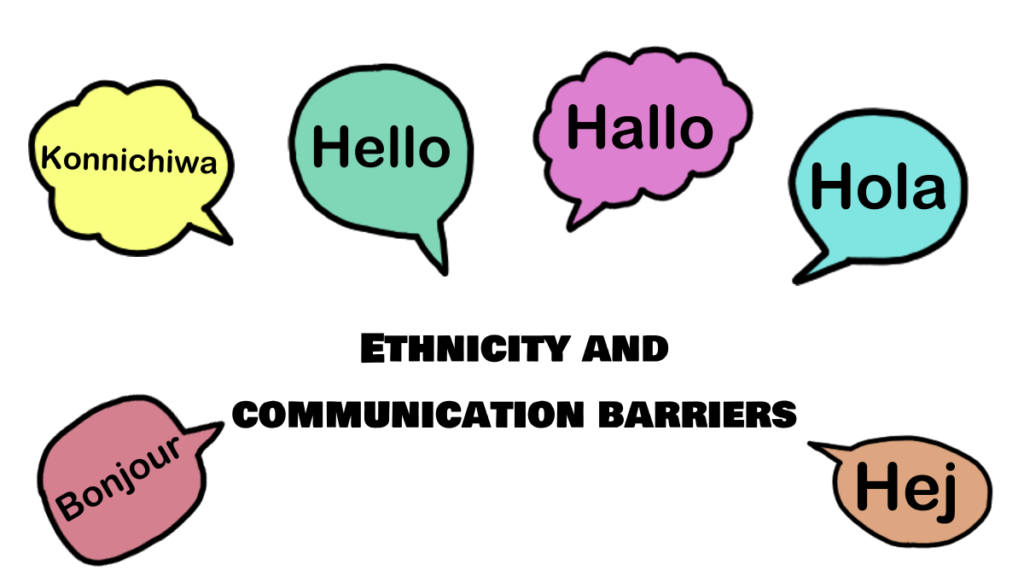How does ethnicity play into communication barriers?
Introduction
What does ethnicity mean?
Do not mistake ethnicity with race. Ethnicity and race are two different ways of categorisation, that are used to classify your identity.
Your race can be determined through your physical features, while your ethnicity is determined through several factors, such as your culture, religious beliefs, or language spoken.
For example, someone’s race may be Asian, but their ethnicity can be categorised into Bangladeshi, Pakistani, Indian, and so on.
We will explore how our ethnicity can cause problems in communication towards our own health.
Ethnicity – Social Barrier? Language Barrier?
Rather than point out ethnicity as our social barrier, it is more precise to say that it comes down to how we were raised and taught.
Our ethnicity says a lot about us. Our cultural differences, our beliefs, our language and even our values, that creates a part of our identity.
But the language we speak, is what makes things difficult for us, overall. It is the first barrier that people face foremost and is the problem that must be overcome before attempting anything further.
Communicating in your mother language in your motherland, or country of origin, poses no problem, but the problem arises when settling in a foreign country where the official language is different.
Particularly, in concerns with health. Communication is needed when you want to talk about health issues that you are facing.
For example, in a case when a doctor needs information about your health.
Imagine talking about health concerns, in Bengali, to a doctor who can only speak in English. The doctor cannot understand you and you cannot understand what the doctor is saying.
The conclusion is, that no one knows what is the problem. You have just wasted a trip to the doctors and another appointment must be booked again.
How do you feel? Exhausted.
Solutions
English is a universal language that has populated around the world, which can help those regardless of which country you were raised in.
– Children
In places like America and the UK, children are taught how to speak, read, and write in English from an early age.
Most children are known to have a higher learning ability when compared to adults and can learn a completely different language than what they are taught at home.
– ESOL Courses
Adults who need help in their English can apply for ESOL classes, which are targeted for those who are not proficient in English. A beginner class for English learning.
ESOL courses are usually free of charge.
– Interpreters And Translators
In some instances, you can ask for an interpreter, when you visit the doctors for health concerns.
You can even ask family members, who are fluent in English, to translate for you as an alternative.
– Gestures, Sounds and Simple Words / Phrases
Using a combination of gestures, sounds and simple words can help communicate your thoughts to others, when you are unable to communicate through language.
You can use simple and frequently-used words, in English, to communicate with others, in simple sentences. Your point can get across in this way.
Some words in English may be like your own, with the same meaning, so this may be helpful at times.
A prime example using these actions would be: pointing at your throat, humming, and saying the word hurt. This can suggest that you have a sore throat or a problem with your throat.
– Writing Beforehand
Have a family member write down your symptoms on a piece of paper and answers to anything that the doctor might ask. When you go to your appointment, you can hand the notes to them.
It might be best to have a family member, or interpreter around for the appointment, just in case the doctor needs to ask more questions.

